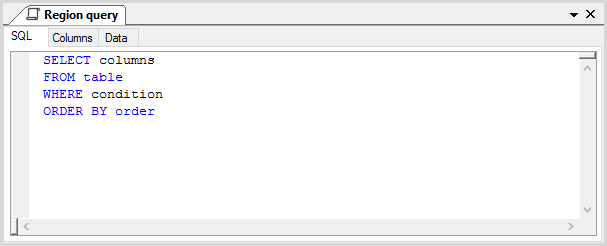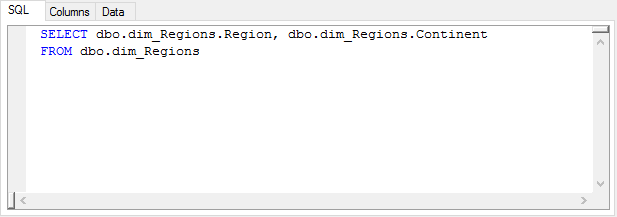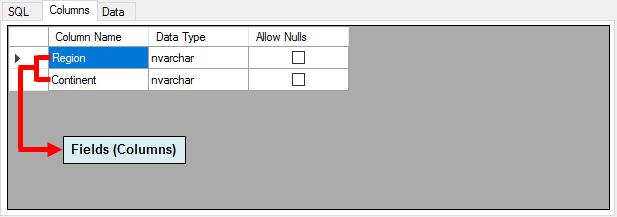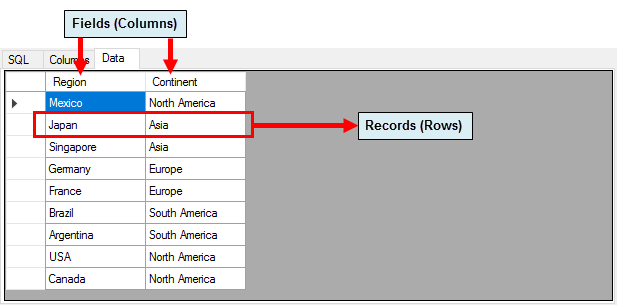The Query
![]() Window is where the SQL query
is defined in order to retrieve specific information from the relational
source. It also shows the data that was extracted via the SQL Query that
was written and executed. There are two types of queries that can be defined
in this window:
Window is where the SQL query
is defined in order to retrieve specific information from the relational
source. It also shows the data that was extracted via the SQL Query that
was written and executed. There are two types of queries that can be defined
in this window:
The Query window consists of three tabs: SQL Tab, Columns Tab, and Data Tab.

Query Window Command Icons
The View Tab for Queries, which only becomes available on the OLATION ribbon when accessing the Query Window, includes the following commands:

Icon Name |
Icon |
Function |
|
Saves a newly created or modified query and any defined attributes. |
|
Refresh Query |
|
Refreshes or updates query. |
New Dimension |
|
Creates a new Dimension out of the currently opened or active relational component, such as tables, views and query. |
Delete Dimension |
|
Deletes the currently opened Dimension. |
Validate SQL |
|
Validates if the syntax of the SQL Statement corresponding to the view is free of errors or valid. |
Query |
|
Inserts a select statement from the source table of the selected Dimension. |
Insert Table/View |
|
Inserts the selected Table or View Name into the SQL statement where the cursor is placed. |
Insert Column |
|
Inserts the selected Column Name into the SQL statement where the cursor is placed. The drop-down displays column names that exist in the selected table or view. |
Insert SQL |
|
Inserts the selected SQL into the SQL statement where the cursor is placed. |
Insert Operator |
|
Inserts the selected operator into the SQL statement where the cursor is placed. |
The SQL Tab displays the SQL Query or the SQL statement written for the saved query.

The Columns Tab displays the different columns/fields that are being accessed by the saved query, their corresponding Data Types and whether each column is enabled for Allow Nulls option.

The Data Tab displays the data that is being accessed by the saved query. This tab does not allow addition or modification of records. The Data Tab can be refreshed to reflect the most recent updates coming from the source relational table.
